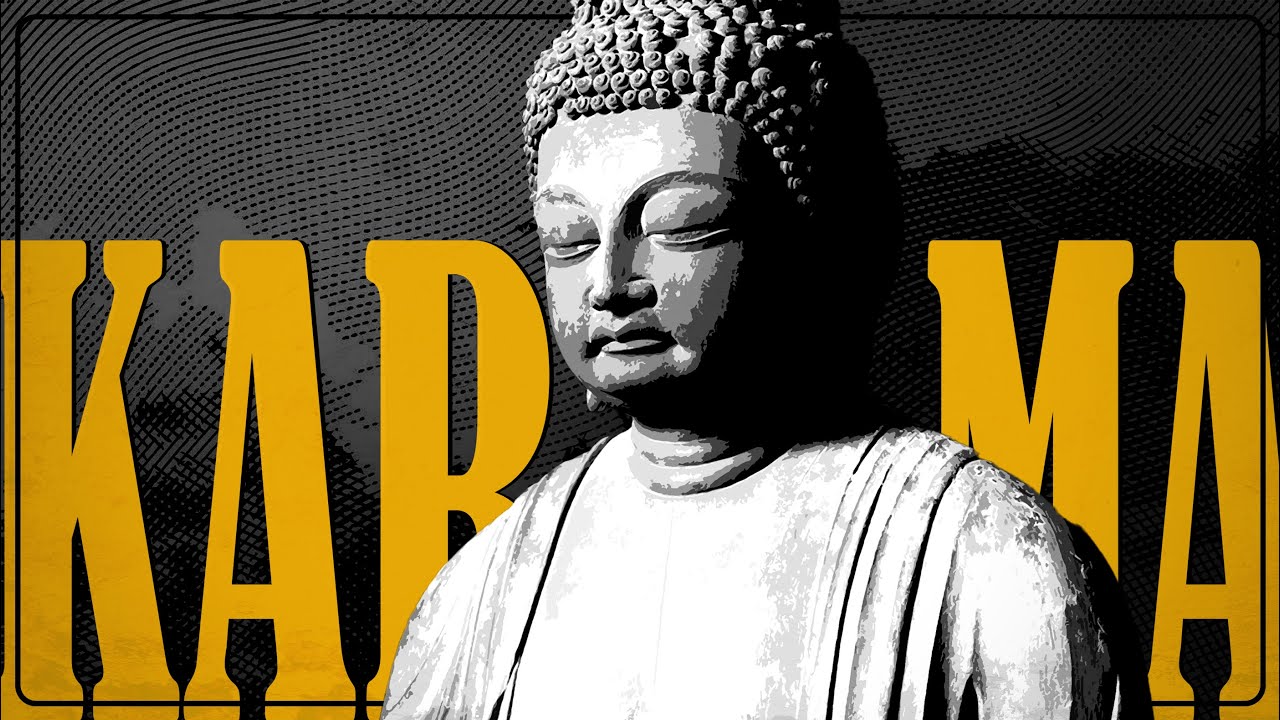4 things you should never speak with others | Buddhism In English
Summary
TLDRThis video delves into the Buddhist teachings on 'unwholesome speeches' that are crucial for cultivating positive relationships and karma. It highlights four types of speech to avoid: lying, which erodes trust; divisive speech, which creates conflict; harsh speech, which hurts others; and idle chatter, which is unproductive. The speaker emphasizes the importance of using words wisely to build a better life for oneself and others, aligning with Buddha's guidance on speech.
Takeaways
- 🤔 The video discusses the importance of mindful speech according to Buddhist teachings, applicable to everyone regardless of their belief system.
- 🚫 Avoid lying, as it can harm trust and character, which are fundamental to happy relationships.
- 🗣️ Refrain from divisive speech that creates conflict or drama among people, often stemming from jealousy or anger.
- 🌬️ Stay away from harsh speech that can bring others down, causing sadness and depression, and is a form of criticism and name-calling.
- 💬 Be mindful of idle chatter, which includes speaking without purpose or meaning, and understand the limits of productive conversation.
- 🔪 Words can be as impactful as a knife, capable of both harm and benefit, emphasizing the need for wise use of speech.
- 🌱 The concept of karma is highlighted, where words can create positive or negative consequences in one's life.
- 🧘♂️ The teachings of the Buddha emphasize the importance of intention behind words and the impact they have on both the speaker and others.
- 💡 The video encourages using words to create positive emotions and feelings in the lives of others, fostering a better life for all.
- 🌟 The four unwholesome speeches are identified as lying, divisive speech, harsh speech, and idle chatter, all of which should be avoided.
- 📚 The script serves as a reminder to use words wisely, as they can significantly influence our lives and the lives of others.
Q & A
What is the main topic discussed in the video?
-The main topic discussed in the video is the four unwholesome speeches according to Buddhist teachings and their impact on our lives.
Why are these teachings relevant to people regardless of their religious beliefs?
-These teachings are relevant to everyone because the principles can be applied to anyone's life, regardless of their religion or belief system, to promote positive communication and relationships.
What is the first unwholesome speech mentioned by the Buddha?
-The first unwholesome speech mentioned by the Buddha is lying, which includes all forms of dishonesty and can harm trust and character.
What is divisive speech and why should we avoid it?
-Divisive speech is creating drama or conflicts between people through words, such as gossiping or talking behind someone's back. It should be avoided because it can damage relationships and is often motivated by jealousy or anger.
How does harsh speech affect our lives and relationships?
-Harsh speech, which includes rude words, criticism, and name-calling, can make people feel sad, depressed, and down about themselves, thus damaging their self-esteem and the harmony in relationships.
What is idle chatter according to the video?
-Idle chatter is speaking about meaningless or useless things without purpose. It is advised to limit such speech and focus on meaningful communication.
Why is it important to set boundaries in our speech?
-Setting boundaries in our speech is important to ensure that our words are productive and do not become unproductive or harmful, thus maintaining positive interactions.
What does the Buddha say about the impact of our words on karma?
-The Buddha says that the words we speak can create either positive or negative karma in our lives, emphasizing the importance of using words wisely.
How can our words be compared to a knife in the context of the video?
-Our words are compared to a knife because they can be used to create positive outcomes, like cutting something useful, or they can harm others, similar to using a knife to cause harm.
What is the final message of the video regarding the use of words?
-The final message is to use our words to create a better life for ourselves and others, promoting well-being, happiness, and peace.
What is the significance of transparency and honesty in relationships as per the video?
-Transparency and honesty in relationships are significant as they build trust, which is a crucial component of happy and healthy relationships.
Outlines

Dieser Bereich ist nur für Premium-Benutzer verfügbar. Bitte führen Sie ein Upgrade durch, um auf diesen Abschnitt zuzugreifen.
Upgrade durchführenMindmap

Dieser Bereich ist nur für Premium-Benutzer verfügbar. Bitte führen Sie ein Upgrade durch, um auf diesen Abschnitt zuzugreifen.
Upgrade durchführenKeywords

Dieser Bereich ist nur für Premium-Benutzer verfügbar. Bitte führen Sie ein Upgrade durch, um auf diesen Abschnitt zuzugreifen.
Upgrade durchführenHighlights

Dieser Bereich ist nur für Premium-Benutzer verfügbar. Bitte führen Sie ein Upgrade durch, um auf diesen Abschnitt zuzugreifen.
Upgrade durchführenTranscripts

Dieser Bereich ist nur für Premium-Benutzer verfügbar. Bitte führen Sie ein Upgrade durch, um auf diesen Abschnitt zuzugreifen.
Upgrade durchführenWeitere ähnliche Videos ansehen

10 Life Lessons From Buddha (Buddhism)

Buddhism: "If There Is No Self, What Is Reborn?"

Mengerikan! Inilah 8 Perbuatan Buruk yang Menyebabkan Seseorang Terlahir Miskin | Rakit Tua

What Happens When the Spirit Leaves the Body? The Hidden Secret | Buddhist Teachings

Rangkuman Kamma & Kelahiran Kembali UIB

Buddhist Karma & Rebirth Explained
5.0 / 5 (0 votes)
